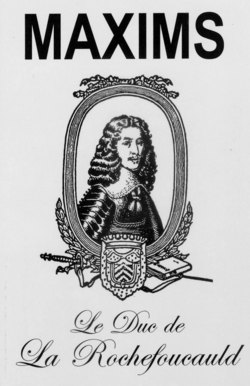Читать книгу Maxims - Le Duc de - Страница 2
На сайте Литреса книга снята с продажи.
ОглавлениеTHE MAN AND HIS OWN IMAGE
(Fables de La Fontaine, I Lib. XL.)
An egotist, unrivalled, loved himself alone
And deemed himself by far the fairest of mankind,
Crying aloud that from each mirror falsehood shone,
And in his depth of folly lived content and blind;
But kindly Fate, to cure him of this sore disease,
Contrived that everywhere he sees
Those silent counselors of ladies old and young,—
Mirrors, at home, abroad, and in each tradesman's booth,
The mirrors of fair gilded youth,
The mirrors from slim girdles hung.
What does Narcissus then? He moves his habitation
To lands the most remote in his imagination,
Fearing to face again the mirror’s searching stare,
Yet even there a brook, translucent as the air,
Flowed smoothly through these distant parts.
He sees himself, is vexed, mistrusts his eyes, and starts,
Thinking himself the victim of a shadowy dream;
He seeks by every means to flee the treacherous flow,
And yet . . . how very fair the stream,
How very loath he is to go!
Apparent is, methinks, my aim;
I sing to all; this greatest of all faults
Dwells variously in each, yet constantly the same.
Our heart's the egotist whom love of self exalts;
The mirrors are the faults our neighbors all display,—
Mirrors that like true portraits our weaknesses disclose;
The brook is–– as I scarce need say—
The "Book of Maxims" that the reader knows.
